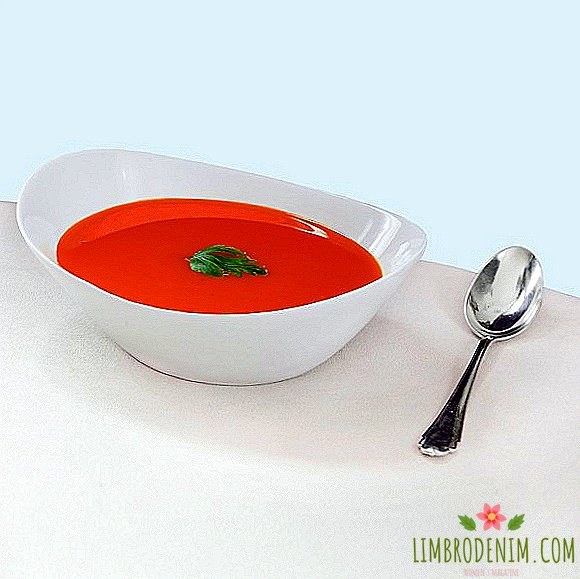From parabens to peptides: What do the terms from cosmetics advertising mean?
Text: Karina Sembe
The advertising of skin care products and procedures promises her shine, freshness and youth. In video clips and promotions, antioxidants fight free radicals and remove toxins, collagen is guaranteed to smooth wrinkles, and peptide cream with nanoparticles is ready to rid our skin of all problems at once. When it is not clear what an antioxidant or a peptide is, it is difficult to rely on their cosmetic properties. To figure out which of these promises can be trusted, find out the meanings of the most common terms from the arsenal of beauty industry marketers and figure out how different substances affect the state of the skin.
Amino Acids
Amino acids are degradation products of proteins. The main proteins of skin cells - keratin, collagen and elastin, and the most important role in the synthesis of these substances necessary to maintain elasticity, youth and health of the skin, play just the amino acids (glycine, serine, lysine and others - more than twenty of them). All compounds have their own characteristics and functions in the body, and with a lack of some amino acids, there is a weak regeneration of the skin, dullness and lethargy, and diseases of the hair - from seborrhea to loss. The course of such natural and at the same time individual processes, such as skin aging, depends on amino acids.
In cosmetology, amino acids are used quite widely, but long-term hydration and acceleration of skin regeneration can be achieved only if the active substances get into the dermis. To ensure the penetration of amino acids through the stratum corneum, manufacturers of medicines and cosmetics with varying success are experiencing new ways - from putting amino acids inside nanoparticles to using micellar solutions as a part of products. Amino acids work effectively in preparations for mesotherapy and biorevitalization: using injection methods, rescue molecules are delivered directly to their destination and stimulate the production of collagen and elastin in skin cells.
Antioxidants
The most well-known antioxidants are vitamins C and E, provitamin A (beta-carotene), lycopene contained in tomatoes, and various polyphenols: flavin found in vegetables, tannins (in cocoa, coffee, tea), anthocyanins (in red berries) . Antioxidants protect cells from potentially harmful reactions that can cause excessive oxidation in the body. The main task of antioxidants is the fight against free radicals (we talk about them below). An excess of free radicals leads to the oxidation of lipids - the basis of cell membranes - and, as a result, to premature fading of the skin. Antioxidant vitamins join the unpaired electrons in the outer electron shell of the free radical and do not allow it to attack other cells of the body.
Antioxidant support from the outside - from dietary supplements to serums - may be needed when the load on natural antioxidant systems suddenly increases: during prolonged sun exposure, during aging of the skin, under stress and in painful conditions. Biologists and dermatologists argue that antioxidants in cosmetic and dermatological products can moisturize the skin, reduce the signs of aging, relieve inflammation, and can even be used to prevent cancer. However, in recent years, the unconditional benefit of antioxidants is in doubt, besides, scientists still have to work on the depth of penetration of antioxidants into the skin.

Collagen
This special protein is the basis of the connective tissues of the body - from bones and tendons to the skin itself. For skin health, it is especially important: 70% of the total protein in it is collagen (mainly type 1 and 2). In the dermis, collagen binds to elastin fibers and forms a kind of skin skeleton. Collagen rich in amino acids provides strength and elasticity of the skin, and a decrease in the production of this protein is associated with aging processes: metabolism slows down, collagen breakdown processes begin to predominate over its synthesis. The fibers in the collagen frame become hard and fragile, and the skin, having lost its support, loses its tone and elasticity, becomes wrinkled, the shape of the face changes.
According to most studies, soluble collagen molecules in creams and serums are too large to penetrate the dermis, and this means, contrary to manufacturers' promises, will provide nothing but short-term moisturizing of the stratum corneum (this is also good, because it visually refreshes the skin). Some double glare tests prove the beneficial effects of collagen supplements on skin condition.
Parabens
Most of us have a cream, mask, or deodorant that contains methylparaben or ethylparaben. These powerful preservatives are widely used not only in cosmetology, but also in the pharmaceutical and food industries. Parabens are para-hydroxybenzoic acid esters, which have high antiseptic properties and effectively resist the growth of the fungus. In sum, with low cost, a long history of use and the ineffectiveness of alternative natural preservatives such as citrus extracts, these properties fully explain the popularity of parabens.
Rodent tests have shown that parabens are practically non-toxic, quickly absorbed, processed and excreted from the body. The safety of using parabens was questioned after they were detected in high concentration in 18 of 20 cases of breast cancer, while scientists took into account the proven ability of parabens to imitate estrogens, hormones known for their role in the development of breast cancer. However, a causal relationship between the use of parabens and cancer has not yet been established.

Peptides
The so-called protein cosmetics containing peptides, is becoming more popular: cosmetologists recommend it for dry and fading skin. Peptides are composed of amino acid residues joined by a peptide bond. Small amounts of peptides are found in almost all living cells. These include many natural biologically active substances: components of blood plasma, some hormones, antibiotics. Peptides are peculiar regulators of cellular "movement": they determine and maintain the proper speed of division of stem cells, help new cells recognize their functions, and in mature cells they maintain the necessary set of enzymes and receptors, increase their viability.
Preparations that contain peptides promise us a lot of happiness at once: increasing the elasticity of the skin and the stability of its cells to oxygen deficiency, reducing existing wrinkles, strengthening hair roots and accelerating their growth. It sounds like a fantasy, but the results of recent studies show that some peptides are able to penetrate the skin and can even be used as an enhancer (a substance that improves penetration) of other substances in the composition of medicines and cosmetics. However, peptides, which are most often stated in anti-aging creams and serums (for example, acetyl hexapeptide-8), practically do not reach the epidermis, not to mention the dermis, where they are most needed.
Free radicals
The modern beauty industry inclines us in every way to fight free radicals. This is a kind of "waste production" that occurs in the process of the vital activity of the organism, including during breathing (that is, in fact, continuously). These unstable molecules, which lack one or more electrons, tend to fill the empty space, taking away the electron from other molecules. The action takes place on the principle of a chain reaction: a molecule lacking an electron also becomes a free radical and begins to fill its need for a missing electron. Such compounds are the norm for the body, there is even the opinion that they provide healing and regeneration to young skin. However, an excessive amount of free radicals is associated with the development of cancer, heart disease and premature aging of the body.
Under the influence of environmental factors - from the deplorable environmental situation to constant stress and metabolic disorders - the body’s antioxidant defense cannot cope with the natural oxidation processes, and the rapid chain reactions of free radicals are out of its control. Food that is rich in antioxidants (vegetables, fruits), properly prescribed dietary supplements and cosmetics with antioxidants - concentrated serums and intensive masks, can slightly support the body in adverse conditions.

Sulfates
Sulfates - salts of sulfuric acid - were added to cosmetics as early as the 1940s as a cleansing and foaming component. Manufacturers loved them for their ability to reduce the surface tension of water or, as chemists joke, make the water even more watery. Sulfates are most commonly used in shampoos, shower gels and facial cleansers. The main culprits of the disputes are petroleum-based: sodium lauryl sulfate (SLS - sodium lauryl sulfate) and sodium laureth sulfate (SLES - sodium laureth sulfate).
Recent studies have placed the link between sulphates and oncological diseases, and the International Health Organization does not recognize SLS and SLES as carcinogenic. At the same time, sodium lauryl sulfate is considered toxic for aquatic fauna, so that, washing the cleansing gel into the aqueduct, we do not really care about the ecology. Sulfates, which cleanse hair and skin by oxidation, leave a thin film on them, and also destroy the hair structure and in rare cases can provoke dandruff. Most hairdressers recommend using sulfate-free shampoos, but they do not do so well with cleansing the scalp, so from time to time you should use intensive cleansing shampoo or go to a salon for professional care.
Toxins
Perhaps the widest and most incomprehensible term in cosmetology. The medical definition of toxins is quite simple: it is a poison of biological origin. Toxins are produced by tumor cells, as well as by bacteria, viruses, fungi or parasites. Neurotoxins affect the nervous system and brain, hematical affect the blood, nephrotoxins - the kidneys, and so on. Some metabolic products are also called toxins if this metabolism is disturbed. For example, if an enzyme is exceeded in a blood test, it is considered a toxin. Hence, all the myths about the miraculous masks, allegedly clearing toxins, debilitating juice detox and hydrocolonotherapy (one of the modifications of treatment with enemas, which has no scientific justification).
It is not clear how a tonic or cream can eliminate toxins from the blood or lymph. It is believed that mineral wraps with algae or clay, which act as sorbents, are able to remove a certain amount of metabolic products through the skin, but there are few scientific publications in this direction, and, apparently, this effect is attributed to wrappings for the most part sweating. In this case, a session in a sauna or an intense workout may be more useful and certainly cheaper.
Photo: kubais - stock.adobe.com, exopixel - stock.adobe.com, gekaskr -stock.adobe.com, habrda - stock.adobe.com




